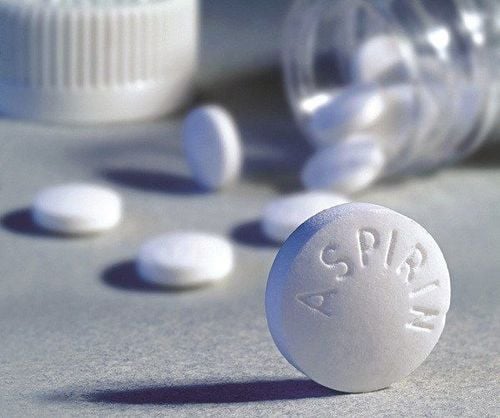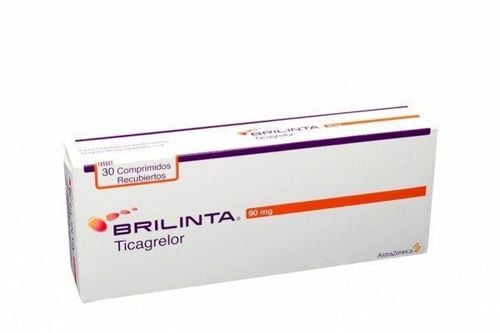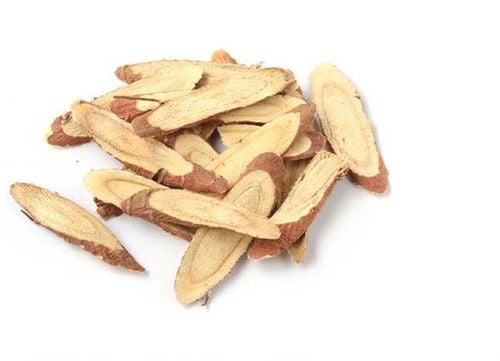This is an automatically translated article.
Licorice has many health benefits such as helping to nourish, detoxify, protect the liver, increase resistance,... However, when drinking licorice, it is necessary to be very careful, patients should not use it for a long time. Because licorice has some side effects such as causing high blood pressure, hypokalemia, ... In addition, licorice has the risk of interacting with drugs used at the same time, affecting the health of the patient.
1. Licorice and Warfarin interactions
Warfarin is an anticoagulant, indicated to treat thrombosis and prevent blood clots from forming in the body. Thrombosis is a very serious condition, which can block blood vessels, cause myocardial infarction, lower extremity venous thrombosis, pulmonary venous thrombosis, ... seriously threatening the patient's life.Warfarin is broken down by the body to be eliminated from the body. When using Warfarin with licorice, licorice can make Warfarin break down faster, thereby reducing the effectiveness of Warfarin, increasing the risk of blood clots in patients. Therefore, physicians and patients should be especially cautious with this drug combination. Be sure to check your coagulation parameters regularly and adjust your Warfarin dose if necessary.
2.Interaction between licorice and Digoxin
Digoxin is a cardiac glycoside, extracted from the leaves of Digitalis lanata. Taking Digoxin helps to increase myocardial contractility and increase cardiac output. Digoxin is indicated in cases of heart failure and supraventricular tachyarrhythmias (eg, atrial flutter, atrial fibrillation, supraventricular tachycardia).
Licorice can interact with the drug Digoxin causing adverse effects on the patient's health. Licorice contains glycyrrhizic acid can cause hypertension, salt and water retention, affecting the therapeutic effect of Digoxin. On the other hand, regular use of licorice can deplete magnesium and potassium, increasing the risk of digoxin side effects.
In general, patients with hypertension, heart failure, pulmonary hypertension, kidney disease, etc. should avoid or minimize the use of licorice. Check food and drug labels to make sure the products you're using do not contain licorice or glycyrrhizic acid.
Immediately notify the doctor if after using licorice and Digoxin, the patient shows symptoms of Digoxin poisoning such as nausea, vomiting, diarrhea, loss of appetite, visual disturbances, irregular heartbeat, etc. ..
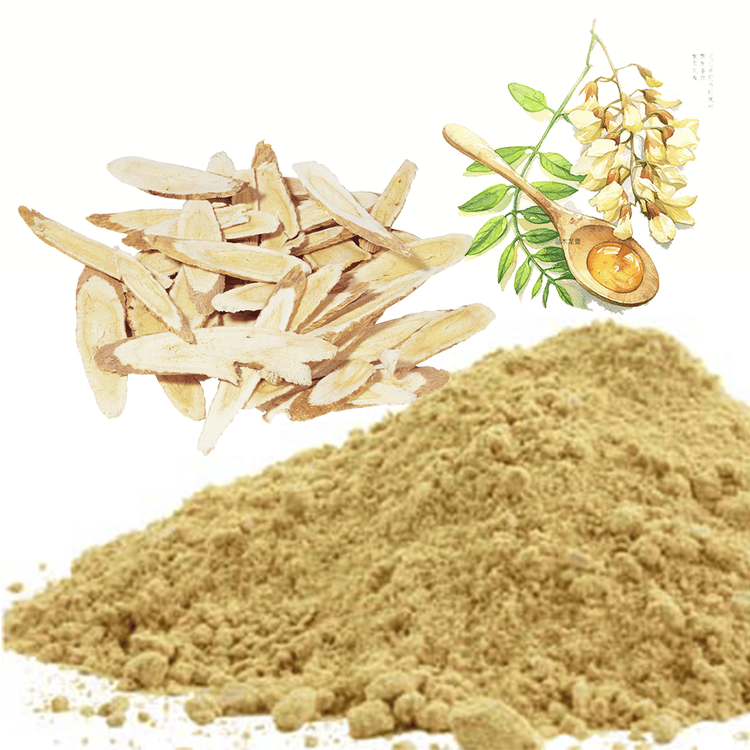
Bạn nên thận trọng khi sử dụng cam thảo với bất cứ loại thuốc nào
2. Licorice and Estrogen Interactions
Studies show that licorice can affect the levels of the hormone estrogen in the body. Using licorice along with estrogen medications might decrease the effects of estrogen medications. Therefore, limit the use of licorice with estrogen drugs such as ethinyl estradiol, estradiol,...
3. Licorice and Ethacrylic Acid Interactions
Licorice can increase the body's elimination of potassium. Ethacrylic acid also increases the body's excretion of potassium. When taking licorice in combination with Ethacrynic acid, there is an increased risk of potassium levels in the body falling too low.
Accordingly, hypokalemia can cause complications such as bradycardia, decreased myocardial contractility, torsades de pointes tachycardia, arrhythmia, etc. timely.
4. Interaction between licorice and Furosemide
Similar to the interaction with Ethacrynic Acid, when taking licorice with Furosemide will increase the risk of hypokalemia, seriously threatening the patient's health.
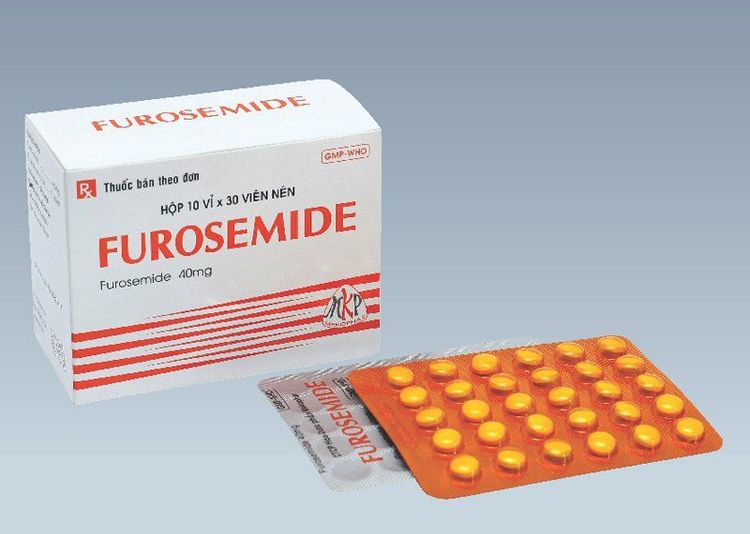
Thuốc Furosemid và cam thảo có thể xảy ra tương tác
5. Interactions with drugs metabolized by the liver
Licorice may decrease the rate of metabolism of some drugs that are metabolized by the liver. When taking licorice during treatment with these drugs, it will increase the pharmacological effects and increase the risk of side effects, causing unpredictable consequences to the patient's health. Therefore, if you use licorice regularly, you should talk to your doctor or pharmacist to see if any of the medications you are taking are metabolized by the liver.
Some drugs metabolized by the liver should be very careful when used with licorice:
Ketamine, Phenobarbital, Orphenadrine, Secobarbital, Dexamethasone Celecoxib, Diclofenac, Fluvastatin, Glipizide, Ibuprofen, Irbesartan, Losartan, Phenytoin, Piroxicam , Tamoxifen, Tolbutamide, Torsemide, Warfarin Lovastatin, Ketoconazole, Itraconazole, Fexofenadine, Triazolam
6. Interactions between licorice and antihypertensive drugs
Consumption of large amounts of licorice has the risk of causing high blood pressure. Because of its high blood pressure, licorice may decrease the effectiveness of medications used to treat high blood pressure. Some antihypertensive drugs may be affected by licorice such as: captopril, enalapril, losartan, valsartan, diltiazem, amlodipine, hydrochlorothiazide, furosemide, ....
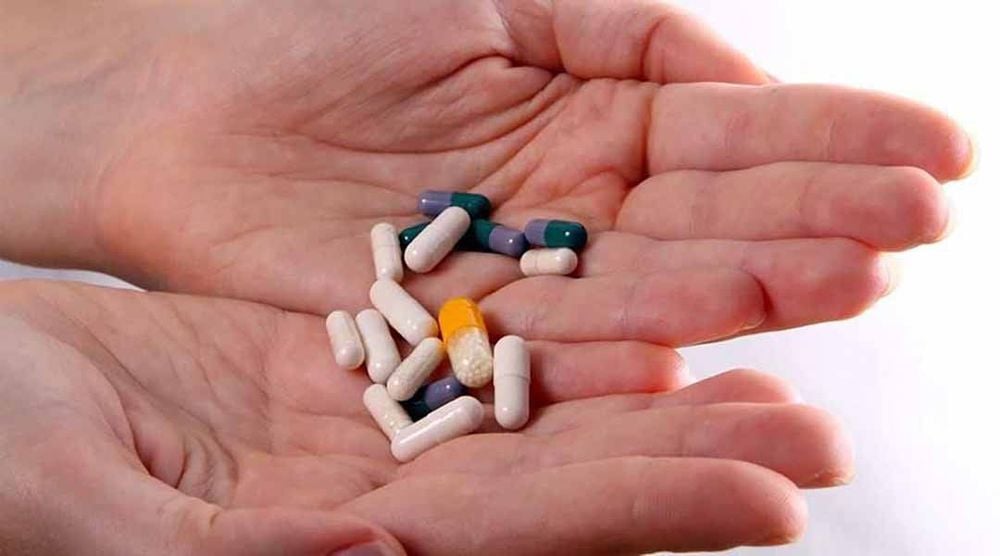
Cam thảo có thể giảm hiệu quả của thuốc huyết áp
7. Interactions between licorice and anti-inflammatory corticosteroids
Drinking licorice will increase the risk of high blood pressure, sodium retention, water retention, hypokalemia, etc. Anti-inflammatory corticosteroids also have similar side effects. Therefore, when using licorice and corticosteroids at the same time, the risk of these side effects will increase. Some commonly used corticosteroid anti-inflammatory drugs include: Dexamethasone, Hydrocortisone, Methylprednisolone, Prednisone,...
Accordingly, patients on long-term corticosteroid therapy should avoid or minimize the use of orange-containing products. beautiful. Even in moderate doses, licorice can cause problems with long-term use.
Licorice is a medicine that brings a lot of therapeutic uses, but in some cases can cause serious drug interactions, affecting the patient's health. Therefore, when using any medication, the patient should inform the doctor and use it exactly as directed.
Please dial HOTLINE for more information or register for an appointment HERE. Download MyVinmec app to make appointments faster and to manage your bookings easily.
References: webmd.com, drugs.com





